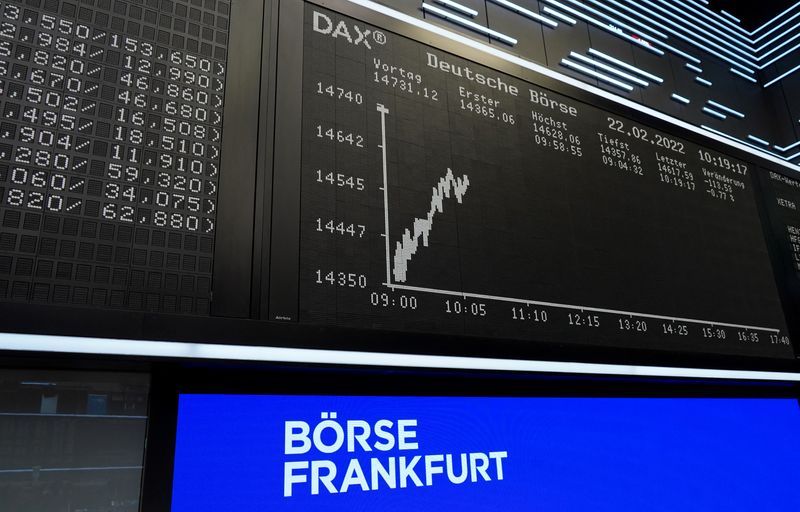By Geoffrey Smith
Investing.com -- German stocks are back in a bull market.
The benchmark DAX index rose nearly 1% on Monday after the European Commission gave Berlin permission to nationalize a former unit of Russian gas monopoly Gazprom (MCX:GAZP), bolstering the efforts of Europe's largest economy to restore order to its energy market after the chaos caused by Russia's war in Ukraine.
As a result, the DAX is now up more than 20% from its lows in late September, the classic definition of a bull market. That's despite ever-clearer evidence that the German economy is sliding into recession, with business profit margins hurt and consumer confidence battered by the sharp rise in energy costs this year.
Among the big gainers on Monday was online fashion group Zalando (ETR:ZALG), which continued its rally since posting stronger-than-expected third quarter numbers earlier this month, while pharma company Merck KGaA (ETR:MRCG) also extended gains after its results last week. Merck stock rose 4.5%, while Zalando stock rose 3.8%.
The DAX is being supported by a vigorous rebound in the euro as market participants pare back their expectations for further interest rate increases in the U.S. after October's lower-than-expected inflation reading last week. That's despite a stern warning from Federal Reserve Governor Chris Waller at the weekend that the CPI print represented "just one data point" and stressed that there is still "a ways to go" before the Fed can stop raising interest rates. The euro rose 4.5% last week and gave up only 0.3% on Monday in response to Waller's commentary.
The DAX, full of major exporters usually benefits from a cheap euro but has had too much of a good thing this year as the euro's fall to a 20-year low only magnified the effects of the spike in prices for oil and gas imports, which are priced in dollars.
The euro is expected to receive a further boost later this week when the European Central Bank announces the early repayment of so-called TLTRO loans by Eurozone banks, a development that will tighten financial conditions in regional markets by draining excess liquidity.
Until the last ECB meeting, banks had been incentivized to hang on to their TLTRO funds because they were the cheapest source of funding available, extended at rates as low as -1%. However, the ECB retroactively changed the interest rate it charges on those loans, bringing them into line with its deposit rate, which now stands at 1.5%.
"This will raise TLTRO costs dramatically, by up to 200bp," said Frederik Ducrozet, head of macroeconomic research at Pictet Wealth Management via Twitter. "Assuming a 2.50% peak in the deposit rate in 2023, the total cost of TLTROs from November 2022 will rise from €12bn under previous rules to over €40bn if banks keep their borrowings until maturity – a €30bn increase."
As of Friday, some €2.113 trillion of TLTRO loans were still outstanding.
